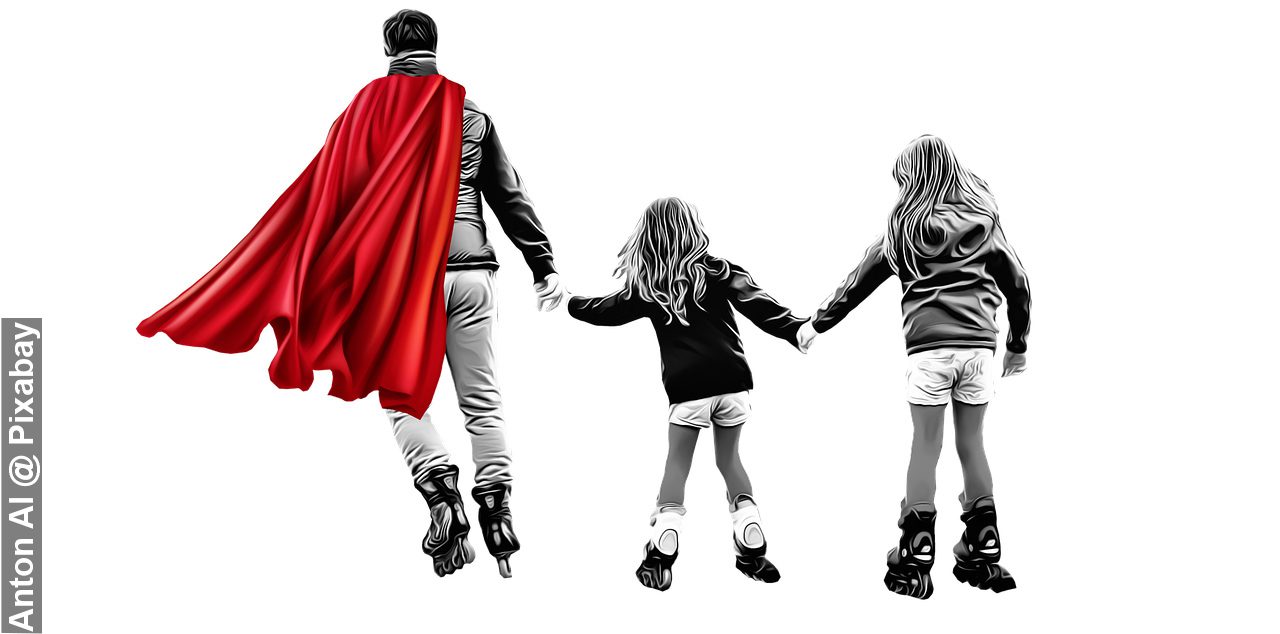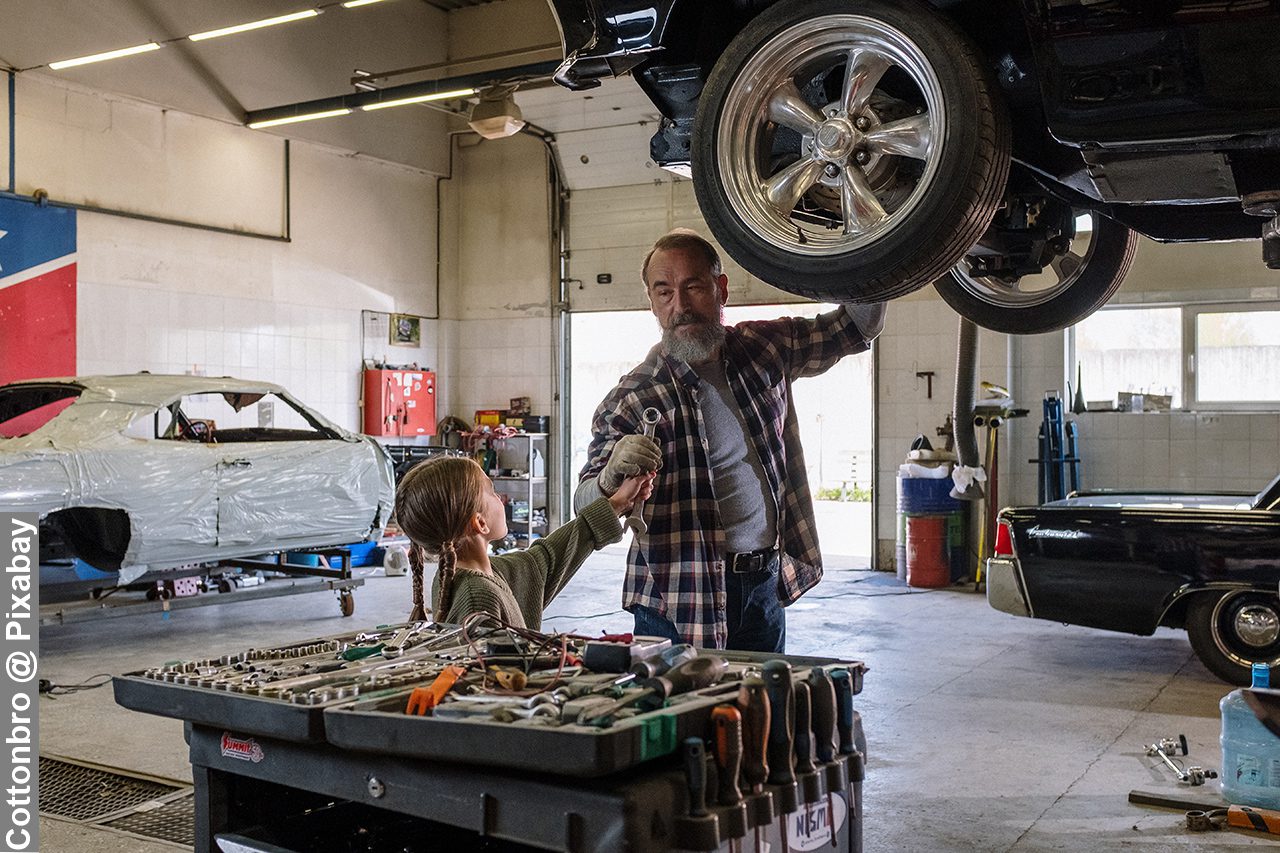In this blog post, I will try to present facts about fathers which will help dispel old-fashioned theories about the role of fathers. I was partly stirred into action after publishing a post on ‘The Role of a Mother in Early Childhood!’.
Up to the first nine, seven and four years (first, second and third child, respectively), I was the primarily responsible parent. After that, I selected a career path that allowed me to be around the kids. This may not have worked out well for me, but I would not change it for the world. My impact on the kids and seeing all the first moments has enriched me as a father and human.
I have never been a massive lover of things like mother’s day, father’s day and valentine’s day. Anything that becomes a single-day, annual celebration peaks my BS barometer. I see the sentiments and the need for lavished appreciation of individuals. But, in reality, it’s a marketing juggernaut machine with money spilling in its tracks.
I will play along with the idealistic sentiments of father’s day. This day offers a special day set aside to celebrate fathers and their essential role in their children’s lives. However, fatherhood is not just about a single day in a year.

Fatherhood is a lifelong commitment. While dads are often appreciated, some things about fatherhood often go unrecognised. Fathers play an essential role in their children’s lives, equal in part to mothers. These contributions should not be taken for granted by fathers to abstain and society to diminish the role.
Fathers are unique and play a special role in their children’s lives in many ways. They provide support, love, discipline, and guidance. Here are five facts about fathers you may not know about.
Facts about fathers: they are more likely to be depressed than mothers
Fathers are sometimes more likely to suffer from depression and anxiety than mothers. This may essentially be because they get less societal and partner support. The general support system is geared up for mothers, and partners do not see beyond their own needs. But things are changing with mental health awareness schemes.
Fathers are also not very good at expressing their emotions during stressful times. Studies have shown that fathers are twice as likely as women to experience depression or anxiety. In a nutshell, a father’s emotional trauma is often forgotten in haste to celebrate mothers. But in other instances, fathers are often of the mantra that ‘big boys do not cry.
Today, we are paying tribute to those men who make our lives possible — and one thing you probably did not know about fathers is that they are more likely than mothers to be depressed.
The maternal “also affects fathers.”
The maternal “love hormone” also affects fathers. This hormone, called oxytocin, is released by the mother during childbirth and breastfeeding. This is pleasing, as I remember trying to initiate forced love with my newborn child very well at birth.
The hormone is the unbreakable link which bonds a mother and a child. It helps to establish maternal instincts, building strong emotional bonds. I think the science showing this also applies to fathers was in its infancy when my firstborn took his first breath. There was a solid push to get fathers skin-to-skin with their children as soon as they popped out of the womb.
When I heard about this before my child was born, I could not wait to rip my top off and allow my child to rest on my chest and acclimatise to their new world. I remember lying there thinking, if only you knew what this new world is about, you would crawl back into the safe environment of the tummy!
I must admit, as sad as it was, I was ready; not only was my pectoral muscles bulging like Arnold Schwarzenegger, my six-pack was a match for Peter Andre in his mid-90s mysterious girl video. No matter what, that child was coming out to a superhero dad.
Scientists are finding that this oxytocin, known as the “love hormone,” may benefit the bond between father and child by boosting paternal caregiving. According to researchers, this could pave the way for new treatments for postnatal depression among fathers.

Fathers spend more time with their kids than in the past
Fathers spend more time engaged in child-rearing than fathers of the past. Findings from studies in the US show fathers are spending nearly as much time with their kids as mothers— only one hour less per week. However, mothers still outnumber fathers by four to one in most households.
The National Fatherhood Initiative backs this up, as they have shown that fathers now spend an average of about 41 minutes per day with their kids. This is an increase of just over 30 minutes in 1995 and 25 minutes in 1975.
There are several reasons for this change: Fathers have become more engaged in parenting. They are working fewer hours, allowing them to take on more responsibilities at home. In addition, they feel better equipped to provide for their families since they are receiving support at work. Also, society has changed, so fathers are no longer considered shameful or wrong to be involved in their children’s upbringing.
The benefits of father involvement are clear: Children who grow up with involved fathers tend to do better academically, emotionally, socially, and physically than those who don’t have involved fathers. They also report higher levels of self-esteem and confidence. And when it comes to relationships later in life, father involvement plays a key role. Fathers who participate actively in their children’s lives ensure the kids are less likely to divorce or experience domestic violence.
They are more likely to be a stay-at-home parent.
Fatherhood is a new role for many men who are still learning about it. However, as fathers learn more, they become more involved in their children’s lives. This involvement can take different forms, such as being a stay-at-home parent or working outside the home.
Studies show that being a stay-at-home father has benefits beyond just spending time with your child. It can improve overall relationship quality. Fathers who are stay-at-home parents have better relationships with their children than those who work outside the home. They also report higher satisfaction levels with their parenting roles and greater feelings of connectedness to their children.
Being a stay-at-home father can be demanding at first, but it is an important role that needs to be filled in today’s society. Fatherhood is changing rapidly, and there is no one right way to do it. It’s about discovering what works best for you and your family!

Fathers can do with support in the postpartum period to adjust.
Fathers need support in the postpartum period. The time required to adjust to their new role, when they may feel overwhelmed or unsupported. Workplaces realise that they are required to support fathers also. There are several ways how support is being provided to fathers during this time:
- Offer paternity leave: Fathers who take paternity leave are more likely to be involved in their children’s lives. They also report feeling happier at work after returning from leave. Fathers who took at least one week of parental leave were almost twice as likely to say they felt like “the primary caregiver”. Also, those receiving paternity benefits are more productive and satisfied with their jobs than those without such benefits.
- National Childbirth Trust (NCT) or Fatherhood programs: Fatherhood groups/programs can provide fathers with educational resources. Such as child development, healthy eating habits, financial planning, etc. These groups offer social environments where fathers can get together and share experiences while supporting each other emotionally.
- Flexible work hours: Many companies now offer flexible work hours so fathers can spend more time with their families. This eliminates the need to change careers or sacrifice income altogether.
Concluding remarks on facts about fathers
Fathers are superheroes, at least in the eyes of their kids. But, sometimes, fathers forget this; we are not bad at parenting. Instead, we often revert to the old narrative of a father’s role.
These views are fading quickly, with modern fathers seeing themselves as equal to mothers. Moreover, with the advancement of research, society is changing its attitudes toward fathers and their role in parenting.
A father’s role cannot be understated and must be factored into a family’s setup if the kids are to gain and grow well-balanced.
Sources
- APA, (2000 ), ‘Fathers’ Involvement in Caregiving Activities and Their Sensitivity During Play Interactions are Influenced by a Number of Factors, New Study Finds’ American Psychological Association, [Accessed September 24 2022]
- Levant, R. F. (2011). ‘Research in the psychology of men and masculinity using the gender role strain paradigm as a framework’. American Psychologist, 66(8), 765–776.
- Michael Weber, (September 4, 2017) ‘What is the link between love and oxytocin?’, Medical News Today, [Accessed September 24 2022]


